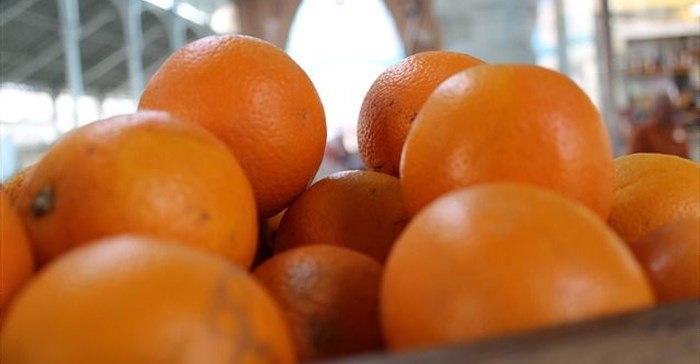Sundays River Valley citrus farmers are set to lose up to R600m as half of their navel production has been lost due to abnormal weather patterns. Initial reports from farmers indicated that 40% of the navels were dropping from trees with the skin split, making it impossible to export them.
But Sundays River Citrus Company (SRCC) managing director Hannes de Waal said updated figures showed 50% of the orange variant had gone to waste. "Navels are especially popular for export because they are available at a time when other oranges are not in season," De Waal said.
"But now, thanks to this natural phenomenon, we will lose half the harvest at a cost of between R400m and R600m to the local farmers."
This amount, though, is only from the loss in actual fruit. De Waal estimates the amount could run close to R1b if the entire supply chain is taken into account.
Valencias, another orange variant grown for a different time of year, were also affected, but to a much lesser extent than the navels.
Unfavourable weather patterns
A team from Citrus Research International (CRI), based in Nelspruit, visited the valley and attributed the natural disaster to unfavourable weather patterns. CRI national extension manager Hannes Bester said high temperatures and low levels of moisture affected the navels' skin development, causing them to split open and fall to the ground.
"Our research will now look at ways to try to counter this phenomenon. Perhaps different treatments for the soil or other irrigation methods," Bester said.
"But there is nothing we can do to reverse the effect on this year's fruit. All we can do is hope the weather changes and next year is a better harvest."
According to the CRI's research, the phenomenon has occurred in a number of regions over the past few years. It is difficult to predict where and when it will strike. Once it starts, very little can be done to save the harvest.
Repeat unlikely
De Waal said farmers in the Sundays River Valley should recover as long as the same phenomenon was not repeated next year, and they were not overly concerned about a second occurrence. "According to the research we have seen, the last time something like this happened in our region was in 1939, so it is definitely not a regular event.
"We also seem to be moving out of the current drought cycle, with some areas reporting good rain lately."
While navels are a popular export to the Middle East, Asia, Europe, North America and Russia, they have a lower yield than some other variants.
"Farmers who can afford it could look to replace navel orchards with something else. But then those orchards will not turn a profit for the next five to eight years, as new trees have to reach maturity first," De Waal said. "But farmers willing to stick with navels are looking at good profits heading forward. In recent years, the fruit juice industry abroad has exploded, and fruit coming out of the valley is some of the most popular in the world."
The SRCC exports about 22 million cartons of citrus annually - six million of navels, 6.5 million of valencias, seven million of lemons, and the rest made up of grapefruit and other orange variants. Each carton weighs up to 15kg. This year the navel export was cut to three million cartons.
Source: Herald






































